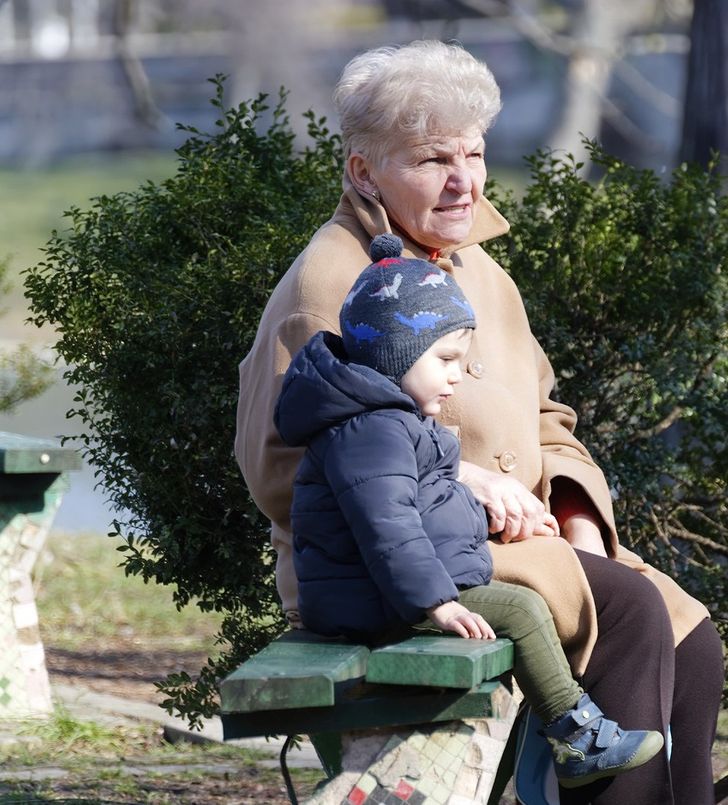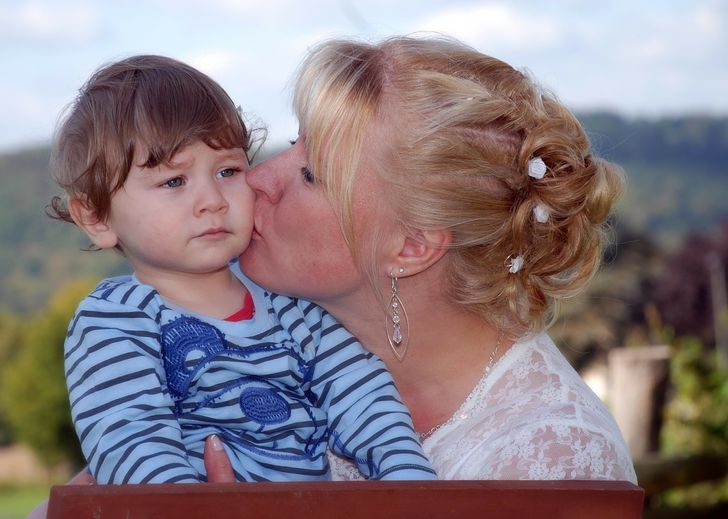There is no way I would have let this go I would have torn into the adults, children should be nurtured, supported, loved and guided through their lives
A Psychologist Reveals How We Teach Our Children to Betray Themselves, and It’s a Bitter Truth
I’m sitting in a cafe. A family sits at the table next to me — a father about 35 years old, his son about 4 years old, and his grandmother, the mother of this father. They ordered tea with sweet buns and the adults are busy talking.
The boy starts drinking the tea but it’s too hot. He tries to sip it a few times but eventually gives up on it. He says to the adults, “It’s too hot.” They don’t pay attention to him. The boy says once again, a bit louder, “It’s too hot.” The grandmother turns to him and says, irritated, “It’s not hot, don’t make that up.”
The father touches the cup and tries to do something, but the grandmother distracts him with a question, and he returns to the conversation again leaving his son alone with his problem. The boy tries to attract attention once again. The grandmother tells him angrily, “Enough! Go on, drink it. It’s not hot. Drink it, we have to leave soon.” She turns back to the father again. The boy slowly drinks the tea blowing at it from time to time and eats a bun. Eventually, they stand up and leave. On the way, the grandmother berates the boy, “If you behave like this, we won’t take you with us next time.”
Honestly, I would rather berate the grandmother. Anyway, let’s turn our attention to the little boy. What did he learn from this situation?
- His problems are not important, and neither is he.
- He can’t talk about his problems out loud.
- He can’t ask for help, he will be either scolded or ignored. If he does, it’ll only get worse.
- He can’t trust his own senses and feelings. Others know better how he should feel in a situation.
- His loved ones can turn away from him just because he said that he feels bad.
- His father won’t defend and protect him.
- His father is weaker than his grandmother. This projection will affect him in his future life.
This list is not exhaustive. But I think it should be enough to scare us. This whole situation lasted for about 10 minutes. I think it’s also repeated in different variations at home when family members communicate with each other. The boy just has to experience a few dozen repetitions, and he will internalize this lesson until the end of his life.
When we were all growing up, we heard something similar. We are the products of this kind of “upbringing.” We don’t hear ourselves, don’t trust ourselves, follow others, and hide our own needs.
When I feel bad in a certain situation or during communication with somebody else, this means only one thing — I feel bad. This is how I feel, I follow these feelings, and I trust them. And I have to defend myself by any means necessary. This is my act of love for myself. I don’t have to think about why someone makes me feel bad or show them understanding. I don’t have to analyze whether they had a difficult childhood and received psychological trauma, allowing them to treat other people like this. They have to think for themselves and they are definitely not my responsibility.
If you know how to defend yourself and set boundaries, it reinforces the growth of your self-respect. While being respectful to yourself, you will be able to develop certain abilities, like looking at the situation through another person’s eyes, seeing their reasons, not getting angry with them, accepting them, and forgiving them. Or not forgiving them. If you walk this path many times, you’ll eventually find a magical fruit — the healthy I-couldn’t-care-less attitude.
You can insult me, but I will just shrug my shoulders and think, “It happens.” After that, you will begin to accept people the way they are, and you will realize that we are all little boys and girls who were taught by adults to betray themselves. We all can still feel pain about it. So, we should avoid multiplying this pain by returning bad feelings.
Since childhood, we have been taught to not trust our feelings. We were told, “You can’t feel this way, it’s not right.” We have grown up without the ability to distinguish these feelings. And you can’t say out loud that you feel bad, because you will be blamed for it. That is why it is so important to learn to trust your own feelings, show them to the world, and talk about them. Not to everyone, of course, only to the people who can understand you and who won’t laugh at you. After that, you should develop your ability to set boundaries and defend them, even aggressively, if need be.
At first, it will be only aggressively. You’ll learn how to do it in a different way later on. That is why you can see so much pain in the eyes of the followers of eastern traditions who encourage peace and universal love, even though they smile and show their “enlightenment.” They missed 2 stages trying to get to the third stage in one go. But it doesn’t work this way. You have to follow a certain sequence of steps.
Bright Side published this article with permission from Larisa Vertysheva.
Comments
the father should have scold the grandma.
That grandmother has entirely too much control. She probably treated her son that way when she was raising him.
Related Reads
17 Witty Comeback Stories That Prove Good Will Always Triumph Over Evil

20+ People Who Set Their Real Hair Free, and Their Beauty Skyrocketed

14 People Who Realized Shocking Things About Their Past

20 People Who Were Lucky Enough to Meet Their Perfect Partner

14 People Who Had to Stop and Rethink Their Family’s Whole Past
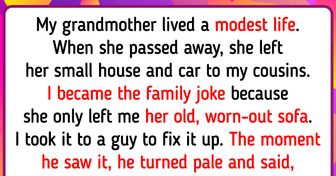
I Gave My House to My Son — He Betrayed Me in a Horrific Way
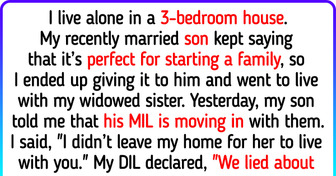
20+ Things About Other Countries That Tourists Just Can’t Understand

12 Story Twists More Shocking Than a Hitchcock Thriller
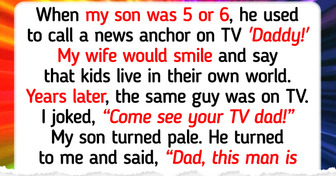
12 People Who Were Even More Terrified After Discovering the TRUE Causes of Eerie Events
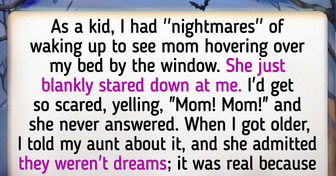
16 Stories That Prove Money Can Change Everything

13 Comics That Show Relationships in Movies Are Much Different From Those in Real Life

14 People Who Know What Being a Good Dad Is Really Like

